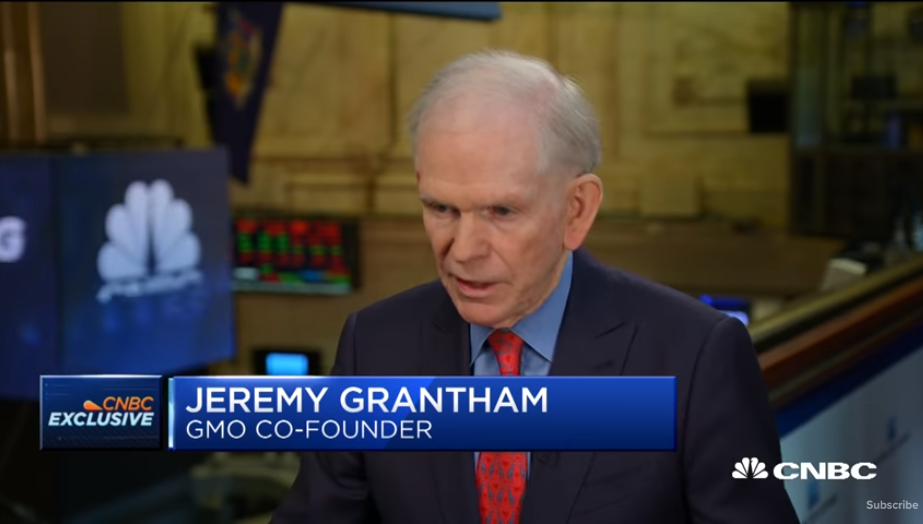Jeremy Grantham was credited with predicting the 2000 and 2008 downturns that rocked the U.S. economy, and he’s ringing the alarm again, warning that climate change will become an even bigger problem for investors going forward.
The World Economic Forum occurred last month where it was concluded that the top five risks to the global economy were climate-based, and the No. 1 threat was extreme weather.
Grantham, co-founder of the Boston-based asset management firm GMO, told Barron’s that the last two years of his efforts to inform his clients about climate change “have been very encouraging.”
“The previous eight were a nightmare. I used to talk about climate change, and my clients would roll their eyes and ask why I was wasting their time. But now everyone is at least talking about it. The problem is, it’s all talk,” Grantham added in an interview at the Cayman Alternative Investment Summit.
“Last year more carbon-dioxide molecules went into the air than any single year in history. We must try harder.”
Grantham warns that the real issue with climate change lies within the agriculture sector, and not so much in the prospect of cities like Miami or Boston sinking underwater.
“Miami underwater is not a bad proposition, as far as I’m concerned (laughs),” Grantham joked. “The real problem is in agriculture, increased temperature, and increased water where you haven’t needed it. And hot weather and fires. Rising water levels are much more dangerous in terms of the loss of the great rice-producing deltas: the Nile, the Mekong, the Ganges et cetera represent something like 20% to 25% of all the rice grown in the world. And they will be covered up for sure by 2100.”
When looking at what asset classes will suffer from climate change the most in the future, Grantham thinks “chemicals, oils, fossil fuels in general are looking pointless on a long horizon.
“Decarbonizing the system is a massive move that permeates every industry in the end. And we will do it, by the way. Technology will make it relatively easy. We will have plenty of cheap green energy in 50 years. We will have nothing but wonderful electric cars that don’t break down, unbelievably efficient,” he added.
He’s especially bearish on oil, which he thinks is a “dreadful industry” when looking beyond the next decade.
“Every year we produce about 1% more than the oil that we have in the ground through increased technology. We don’t need to discover another barrel, and we can’t afford to burn what we have. An enormous amount of stranded assets will be revealed. So be very careful. That’s not to say they won’t go up 50% or even 100%. But it will be only temporary.”
But Grantham sees a problem in how long it will take to reach this efficiency.
“If we proceed at the current pace, we will be OK in terms of technology, but enormous, irretrievable damage will happen to biodiversity,” Grantham said. “We have no idea what happens when you wipe out insects, by the way. The greater the uncertainty, the greater the risk when you’re dealing with existential threats, as we are.”
The biggest message Grantham had to investors on climate change, it seems, is that everyone needs to “wake up” and really apply what is happening in the world to their portfolios — and not just for their own benefit.
“People listen but don’t really take it in. If that continues, climate change is going to trample through your portfolio and kick its a–,” Grantham warned. “And you have to care about it, because it’s not just an issue for your miserable portfolio. It’s an issue for your grandchildren.”
